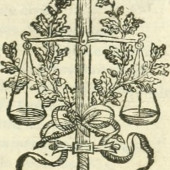It began with a photo shared privately among friends and set in motion events that resulted in a precedent setting award for damages for a privacy breach.
This week, the Human Rights Review Tribunal awarded Karen Hammond over $168,000 dollars, largely in part for the severe humiliation she suffered through the actions of her former employer, NZCU Baywide.
The amount is ground breaking because it exceeds by a wide margin the previous highest award of $40,000 set in 2003 (Hamilton v The Deanery) and sets a new benchmark for compensating harm caused by a breach of the Privacy Act for unlawfully disclosing personal information.
The Tribunal said in its decision that NZCU Baywide was in breach of principle 11 of the Privacy Act, which states an agency that holds personal information shall not disclose the information to a person or body or agency.
The information related to a photo that Ms Hammond had shared among a circle of friends on Facebook. The photo featured a cake with written obscenities referring to NZCU Baywide, which was her employer at the time - although she was in the process of leaving the company for another employer. The privacy setting meant only those who had been accepted by Ms Hammond as friends had access to the photo, taken at a private dinner party.
The Tribunal said the company management received evidence of the photo and the human resources manager then coerced a junior employee to reveal the photo on her Facebook page. The manager made a screenshot of the photo and disclosed it to other senior managers. The screenshot was then distributed to several employment agencies in the Hawke’s Bay area by email, and was accompanied by phone calls from NZCU Baywide warning against employing Ms Hammond.
The Tribunal said the photo had become the basis for a “sustained campaign by the company to inflict as much harm and humiliation as possible by ensuring she (Ms Hammond) could not be employed in the Hawkes Bay area” and to get her dismissed by her subsequent employer.
The campaign against Ms Hammond made her new position untenable, forcing her to resign because of the threat by NZCU Baywide to boycott her new employer. She was unemployed for 10 months and was not been able to find employment in her preferred field of finance. Her close relationships were severely affected and the stress caused significant harm to her family. The Tribunal noted that she and her partner had struggled financially and emotionally.
The company did admit to breaching principle 11 and had apologised to Ms Hammond. However, the Tribunal said on the balance of evidence, it had established that loss, detriment, damage or injury, as set out in section 66 of the Privacy Act, had occurred to Ms Hammond. It was also satisfied that there had been significant humiliation, loss of dignity and injury to her feelings.
The Tribunal awarded damages of $98,000 for humiliation, loss of dignity and injury to feelings. Further damages were awarded, including $38,350 for loss of income, $15,543 for legal expenses and $16,177 for the loss of a salary benefit Ms Hammond might have expected to obtain, but for the interference to her privacy.
The decision sets a new benchmark for compensating harm caused by a breach of the Privacy Act for unlawfully disclosing personal information.
Human Rights Review Tribunal,
Facebook
Back

